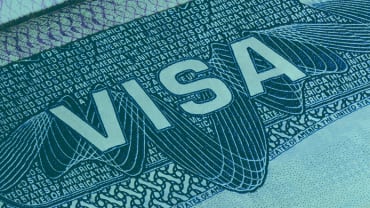Regulations were laid before Parliament in January 2020 which require intermediaries and, in some cases, taxpayers, to report details of cross border tax arrangements to HMRC.
The International Tax Enforcement (Disclosable Arrangements) Regulations 2020 (the "Regulations") implement EU Council Directive 2018/822 (which amends EU Council Directive 2011/16) and take effect from 1 July 2020 (but arrangements entered into from June 2018 will also have to be reported). Reports will have to be made within 30 days of certain trigger points.
The UK is obliged to implement the Directive during the Withdrawal Agreement transition period and the UK has affirmed its commitment to tackling international tax avoidance and evasion and working internationally to improve tax transparency.
The Regulations are extremely wide in scope and in their Summary of Responses to the consultation document, HMRC has committed to publishing detailed guidance on how it intends to apply the rules in practice.
However final guidance is not expected until June, and with the first reports due in August, there is widespread concern that businesses affected will not have enough time to prepare. Below are details of the rules and the main features to be considered.
Cross Border Arrangements
The Regulations apply to "cross border arrangements" which bear certain "hallmarks". An arrangement is a "cross border arrangement" if it "concerns" more than one EU member state or an EU member state and a third country; and the participants are resident in or have tax presences in different jurisdictions, or the arrangements could affect tax reporting.
HMRC's view is that for an arrangement to "concern" multiple jurisdictions, those jurisdictions must be of some material relevance to the arrangements, so a transaction will not be caught merely because more than one jurisdiction is involved.
UK Intermediaries and UK taxpayers
The primary reporting obligation falls on intermediaries. Taxpayers who participate in the arrangements have a secondary obligation to report where no intermediary is required to report (for example, because of legal privilege).
The obligation to report in the UK is limited to intermediaries and taxpayers who have a connecting factor with the UK ("UK intermediaries" and "UK taxpayers"). The connecting factors with a state are residence, having a permanent establishment there, (for intermediaries) place of incorporation and registration with a professional body; and (for taxpayers) where income is received or profits generated, and where an activity is carried on.
If an intermediary or a taxpayer has a connecting factor with more than one state, the state with the connecting factor highest on the list takes priority and the intermediary/taxpayer must report there.
A UK intermediary or a UK taxpayer is not required to report in the UK if:
- it has a reporting obligation in another state which is higher on the list by reference to connecting factors than the UK; or
- (in the case of an intermediary) another intermediary has made a report and the UK intermediary holds evidence of that; and
- (in the case of a taxpayer) another taxpayer was involved in the reportable arrangement and the taxpayer holds evidence that the arrangement has been reported.
Intermediaries
Intermediaries fall into two categories, those who design and promote cross border arrangements (promoters) and those who provide aid, advice or assistance in relation to the arrangements (service providers).
Notably service providers do not have to be involved in giving tax advice to be intermediaries. Both are subject to the same reporting obligation although a key difference is that service providers do not have an obligation to report if they did not know and could not reasonably have known that a reportable arrangement existed. There is no equivalent defence for promoters.
HMRC says service providers will not be required to do any additional customer due diligence beyond what they would normally do in the course of their business and in compliance with their existing obligations.
It has committed to providing guidance and examples of what an intermediary could reasonably be expected to know, and where to draw the line between service providers and promoters.
However, intermediaries cannot be wilfully blind nor artificially split up information to avoid the reporting requirement.
Taxpayers
The reporting requirement applies to "relevant taxpayers" if there is no intermediary required to file a report, either in the UK or another member state. A relevant taxpayer is a person:
- to whom a cross border arrangement has been made available for implementation; or
- who is ready to implement a cross border arrangement; or
- or who has implemented the first step of a cross border arrangement.
UK relevant taxpayers are also subject to an annual reporting requirement which applies for the first year in which the arrangement is made available/ready for implementation/the first step in implementation is taken; and thereafter in any subsequent year in which the arrangement has a tax advantage for the taxpayer.
The taxpayer must make a return setting out the Arrangement Reference Number allocated by HMRC and the tax advantage of the arrangement.
HMRC envisages this being done in the white space on income tax and corporation tax returns.
Employees
Employees who take actions on behalf of an employer which fall within the definition of intermediary, are not intermediaries, and it is the employer firm that is the intermediary.
Partnerships
HMRC's view is that individual partners can be intermediaries, but partnerships will be able to make reports on behalf of partners, to avoid them having to report separately.
Multiple filing obligations
Where a reporting requirement arises in more than one state, the connecting factor priority rules will generally prevent the need to report in more than one state.
However partnerships, which do not have a place of residence due to their transparency, will have to report in all states in which they have a permanent establishment.
Multiple filing obligations can also arise where more than one intermediary is involved. A UK intermediary is not subject to the reporting requirement if another intermediary has filed a report (in the UK or elsewhere) containing all the information that the UK intermediary would have been required to report; and the UK intermediary has evidence of that filing.
The evidence required includes the Arrangement Reference Number allocated to the arrangement by HMRC.
Concern has been expressed about the amount of evidence that intermediaries are required to hold to satisfy themselves that all the necessary information has been reported; and the significant practical issues in intermediaries sharing reports, and obtaining and sharing Arrangement Reference Numbers, within the reporting timelines.
The Government says that duplicate reporting should be avoided where possible, but in practice, some multiple reporting will be almost inevitable.
Hallmarks
Arrangements are reportable if they bear one of several "hallmarks", which are features commonly seen in aggressive tax planning (such as confidentiality agreements, remuneration related to tax saving, standard documentation, loss buying, circular transactions); or which affect tax reporting obligations.
Some of the hallmarks are subject to a "main benefit" test, which is that obtaining a tax advantage is the main benefit or one of the main benefits that might reasonably be expected from entering into the arrangements.
The test is an objective one and the UK definition of "tax advantage" includes a requirement that the tax advantage cannot reasonably be regarded as consistent with the policy and principles of the tax provisions concerned.
A tax advantage will be in scope of the Regulations if it relates to direct taxes arising in EU member states. While this is a welcome change from the original draft regulations, which applied to worldwide taxes, it means UK intermediaries may have to consider the policy objectives of non-UK taxes.
Legal Privilege
Lawyers are not required to report information that is covered by legal professional privilege, to HMRC or to other intermediaries. When an intermediary is not required to report because of privilege, it must notify any other intermediaries involved or, if none, the taxpayer, of the arrangements. This obligation is also subject to privilege.
The practicalities of notifying other intermediaries in circumstances where privilege applies without breaching that privilege remain to be worked out.
HMRC previously expressed the view that legal privilege did not extend to factual matters and did not provide a blanket exemption from reporting.
In its response to the consultation, the Law Society strongly disagreed with HMRC's view and the exact scope of the privilege exemption is still to be clarified. HMRC says it will work with the legal sector to provide guidance on how the rules will operate.
Reporting Triggers and Time Limits for Reports
The Regulations come into force on 1 July 2020, but arrangements entered into from June 2018 (when the EU directive came into effect) will also have to be reported.
Where the first step in the implementation of the cross-border transaction took place between 25 June 2018 and 30 June 2020, the report must be made by 31 August 2020.
Going forward, reports must be made within 30 days of the earliest of:
- the day after the day the arrangement is made available for implementation;
- the day after the day the arrangement is ready for implementation;
- the day the first step in the implementation of the cross-border arrangement is taken.
There is an additional trigger for intermediaries who are service providers. They must make a report within 30 days beginning on the day after they provide aid, assistance or advice in respect of the arrangements.
Form and content of report
Reports required to be made by the Regulations will be made electronically to HMRC. The form and manner of the reports will be as directed by HMRC, and details are still to be made available.
When a report is made HMRC will allocate a reference number ("Arrangement Reference Number" or "ARN") to the arrangement and notify the ARN to the intermediary (or the taxpayer, if the taxpayer makes the report).
The intermediary (or taxpayer) must notify the ARN to any person he knows or should reasonably be expected to know is an intermediary (or relevant taxpayer) in relation to that arrangement, within 30 days of being notified of the ARN.
The information that must be reported to HMRC is listed in the Directive and includes identification of the intermediaries and the taxpayers, details of the hallmarks that apply, a summary of the arrangement and the value of the arrangement.
The reporting obligation applies only to information that is within the intermediary's (or taxpayer's) knowledge, possession or control. Issues have been raised around the treatment of information that is spread across an organisation, and the separation of information to avoid conflicts of interest, or for GDPR reasons.
The Government has acknowledged the challenges with this but also considers the risk of deliberate and artificial separation of knowledge to avoid reporting requirements has to be managed.
The information in the reports will be shared with EU member states.
Penalties
Failure to comply with the Regulations will generally incur a one-off penalty of up to £5,000, with scope for reduction if there are mitigating factors.
If HMRC considers this is too low, it can seek daily penalties of £600 for as long as the non-compliance continues.
If HMRC considers that is still too low, it can seek a penalty of up to £1m. It has said, however, that daily penalties will only apply where there have been serious failings, including where the failure was deliberate. In response to representations made in the consultation, the existence of reasonable procedures to ensure compliance will be taken into account in determining whether to impose daily penalties.
Taxpayers can be liable for penalties of up to £10,000 for each reportable arrangement for repeated failure to comply with the annual reporting requirement.
What next?
Much remains to be clarified about HMRC's approach in implementing the Regulations including:
- when an arrangement "concerns" more than one member state and therefore falls within the definition of a cross border arrangement;
- what a service provider can reasonably be expected to know, and how much investigation a service provider has to do to identify if an arrangement is reportable;
- where the line between service providers and promoters will be drawn;
- the scope and application of the hallmarks;
- trigger points for reporting;
- the main benefit test (tax advantage);
- the scope of legal professional privilege;
- how much evidence is required before one intermediary can rely on another's report;
- the operation of penalties.
HMRC has undertaken to provide detailed guidance, which is expected in draft in April/May, and in final form by June. However difficult and undesirable it may be, businesses need to plan for the changes now, without the benefit of that guidance.











